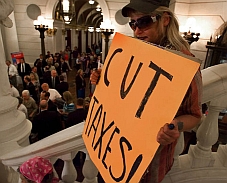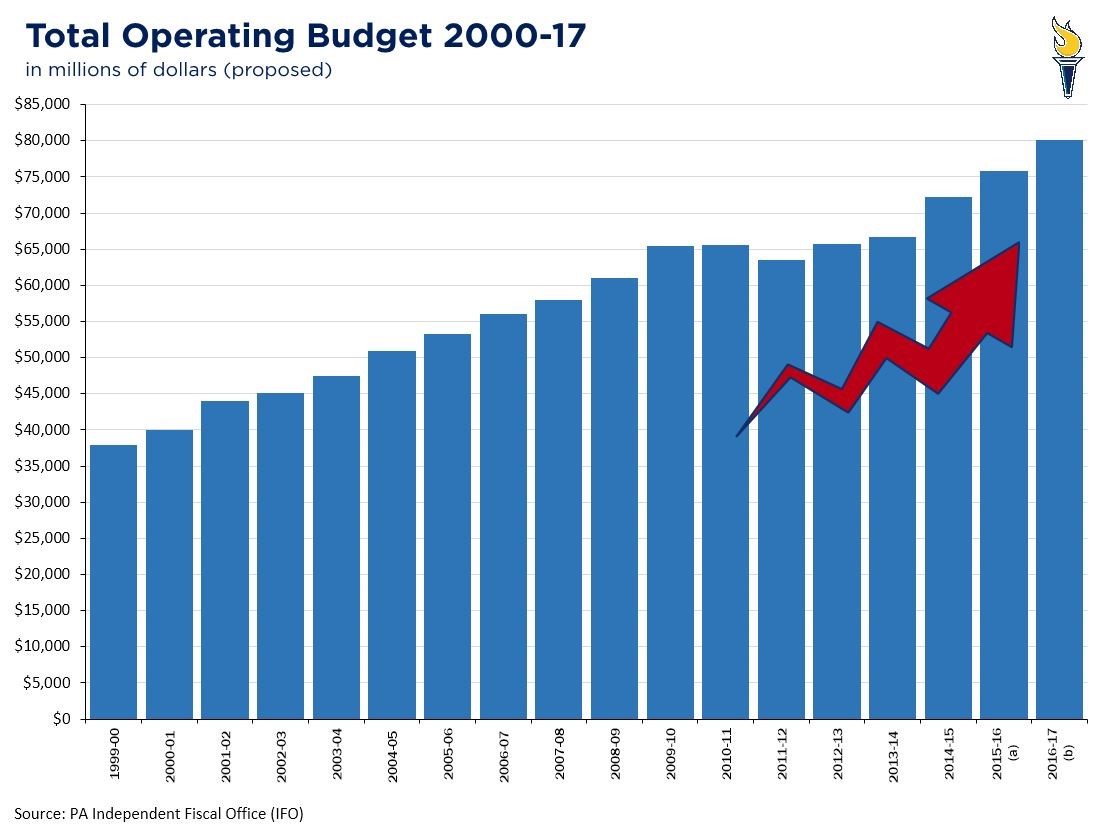Media

No One Person is to Blame for Pennsylvania’s Problems
Proponents of bigger goverment have crafted a narrative that government has been cut to the bone. Pennsylvania needs massive tax hikes, they say, to repair the damage done by Gov. Corbett, whose slash-and-burn budgeting approach paved the way for corporate tax cuts.
Yes, Gov. Corbett cut spending during his first year in office, the first reduction in decades. But then spending increased in the three succeeding years—pushing spending levels, including education spending, to all-time highs.
The record is even more mixed on tax increases. Gov. Corbett did attempt to reduce Pennsylvanians’ tax burden by continuing the phase out of the Capital Stock and Franchise Tax. But he also approved legislation that increased the gasoline tax—now the highest tax rate in the country—and imposed an effective 5.5% severance tax (through the “impact fee”) on the natural gas industry.
This growth of government under the Corbett Administration is not an aberration; it is a bipartisan trend.

Of the last 45 state budgets, 44 have increased government spending. Consequently, Pennsylvania’s tax burden has climbed to 15th over the last two decades. During the same period, Pennsylvania ranked near the bottom in job growth, personal income growth, and population growth.
All of these statistics are cause for concern, especially the lack of population growth. Pennsylvanians are moving to other states at an alarmingly rate. In 2015, one person moved from the commonwealth every 12.5 minutes. Overall, the country’s population is shifting to low tax states where there are more opportunities for people to build a better life.
Decades of government growth have led to record-high debt, a suffocating tax burden, and a subpar economy. Add to this the constant brain drain, which has chased away $11.6 billion, and it should come as no suprise when one-third of Pennsylvanians say they prefer to live in another state.
If we're going to start tackling these problems, we need to understand their cause. Pennsylvania's plight is not the responsibility of one party or person. It's the result of a series of poor decisions grounded in the idea that concentrating more power in government is the path to progress.
The last 45 years demonstrate otherwise.